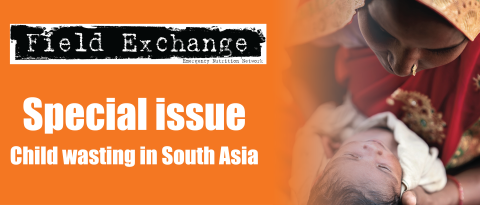Improving women’s nutrition is imperative for the rapid reduction of childhood stunting in South Asia
Research Snapshot1
Maternal factors, both nutritional and non-nutritional, are a significant contributor to high rates of undernutrition in children in South Asia. The implications of direct nutrition interventions on women’s nutrition, birth outcomes and stunting rates in South Asia are indisputable and well documented. This paper explores such maternal factors, presenting the evidence of nutrition-specific and nutrition-sensitive interventions to improve maternal nutrition status, birth outcomes and child undernutrition.
Over the last decade, studies have shown the impact of non-nutritional factors on women’s nutrition, birth outcomes, caring practices and nutritional status, including women’s empowerment and gender inequality. Research highlights the role of an early marriage and conception age, poor secondary education, domestic violence, inadequate decision-making power, poor control over resources and strenuous agriculture activities in poor child nutrition outcomes.
The authors stress that, given these factors, it is critical to intervene not only in the first 1,000 days of life but also during adolescence, pre-conception and pregnancy to support optimal child growth. Interventions to prevent early marriage and conception, empower women, increase purchasing power and encourage school attendance are important, as are cash transfers and microfinance. Nutrition-specific interventions are also essential and should aim to improve the nutrition status of women, ensuring they enter pregnancy with adequate height and weight and are free from anaemia. Increasingly, there is a need to also consider overweight and obesity in improving maternal nutrition in the region.
The paper concludes that a comprehensive approach is needed that combines nutrition-sensitive interventions with a package of evidence-based direct nutrition interventions. A range of programme platforms promoting health, education and the empowerment of women can be strategically used to reach women, improve maternal factors linked to birth outcomes and the growth of children and accelerate a reduction in child undernutrition rates in South Asia.
1 Vir, S. C. 2016. Improving women’s nutrition imperative for rapid reduction of childhood stunting in South Asia: coupling of nutrition specific interventions with nutrition sensitive measures essential. Maternal&Child Nutrition (2016), 12 (Suppl. 1), pp. 72–90. https://doi.org/10.1111/mcn.12255


